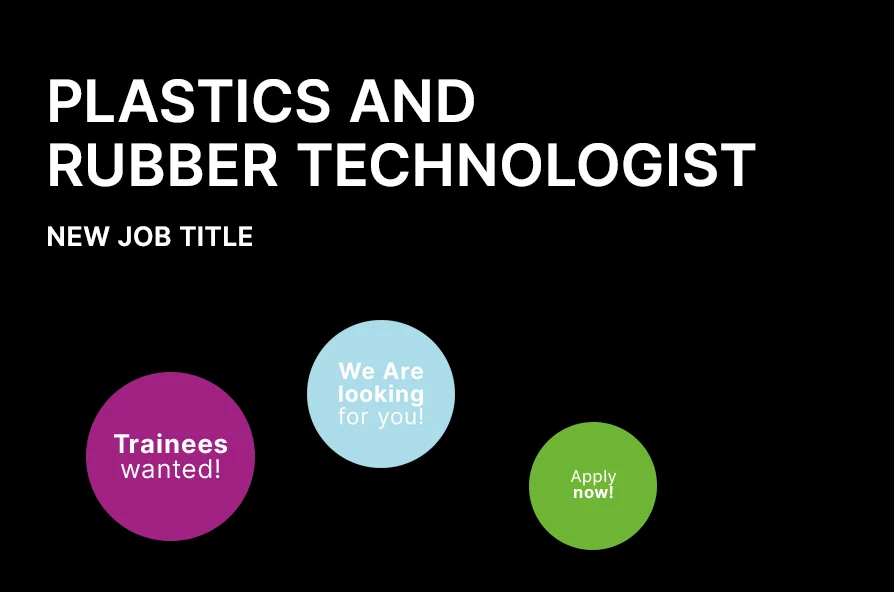As of August 1, 2023, the plastics industry’s training occupation will have a new look: the process mechanic for plastics and rubber technology will become the plastics and rubber technologist.
As the previous training regulations date back to 2012, the topics of digitalization and sustainability have been given greater weight as part of the reorganization: Digitalization is also changing processes in the plastics and rubber industry, and topics such as the recyclability of products and the use of renewable raw materials are playing an increasingly important role. During their training, future plastics specialists acquire a wide range of knowledge and skills: They plan and monitor the production of plastic and rubber products, set up production machines, prepare raw materials and control quality. You will learn about the specific properties of the various polymer materials and the appropriate processing methods for each.
In addition to a new name, learning content on sustainability, the circular economy and digitalization is now more integrated into the training course. The tried-and-tested structure of the seven disciplines remains in place, with a new focus on the aspects of resource conservation and digital know-how. In future, the additional qualification “Additive manufacturing processes” and “Process integration” from the industrial metalworking professions will be added.
This modernization of the job profile also makes our apprenticeship profession what it has long been in the plastics industry: diverse, digital and sustainable.
